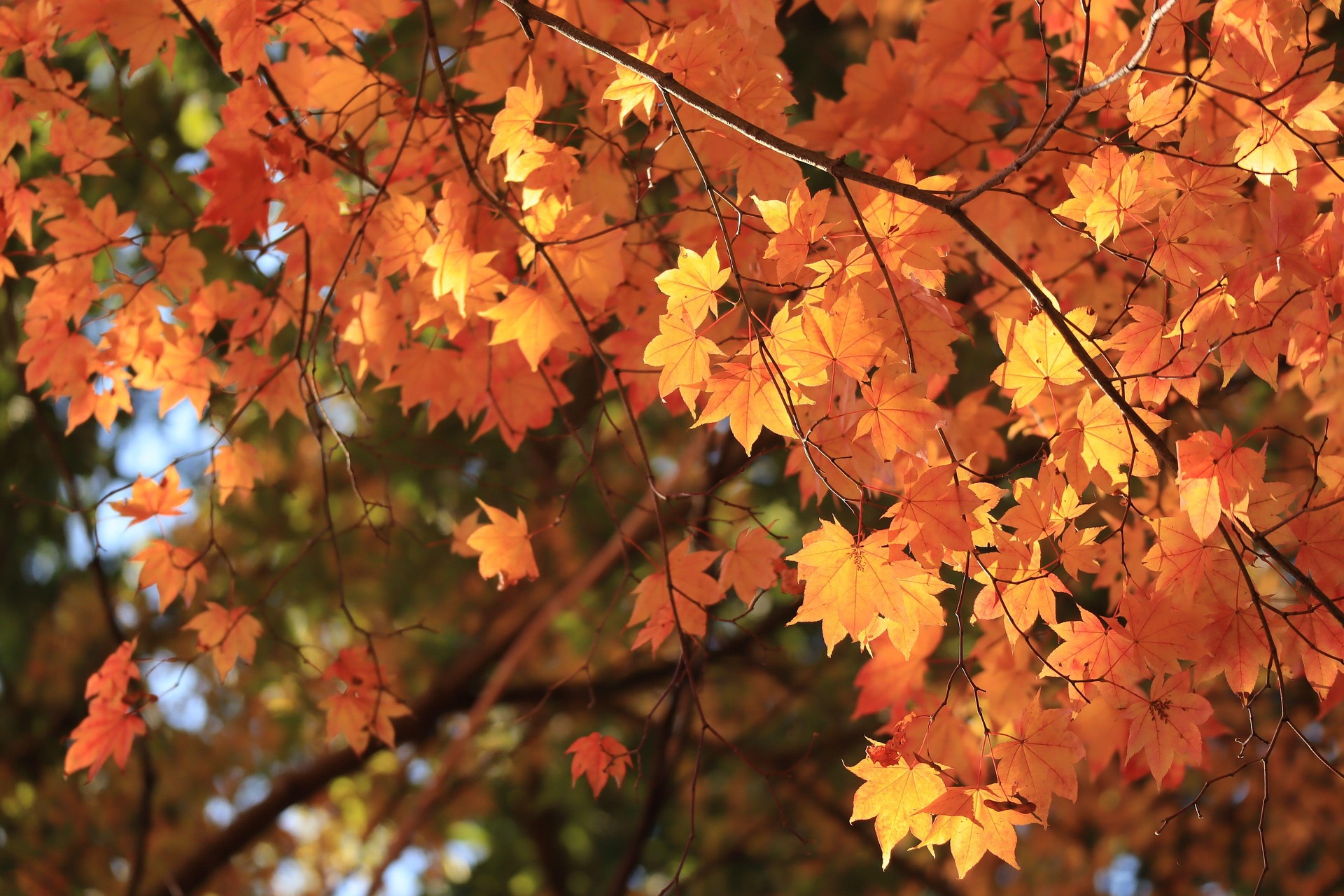Autumn in Japan is a season that invites reflection. The air turns crisp, the leaves begin to fall, and with them come centuries-old sayings that reveal how deeply the Japanese language and culture are tied to the natural world!
Today, let’s explore three beautiful proverbs about autumn, what they mean, and how you can use them to deepen both your Japanese and your cultural understanding.
🍁 一葉落ちて天下の秋を知る
(いちよう おちて てんかの あきを しる)
From one fallen leaf, we know autumn has come.
This saying reminds us that even a small sign can reveal a greater truth. It’s often used metaphorically—for example, noticing small changes in someone’s behaviour that hint at a bigger shift.
In language learning, this could be the moment you catch a nuance in conversation that you would have missed before.
Try using it in context:
- 一葉落ちて天下の秋を知る。小さな変化から、大きな流れを読み取れることもある。
🌱 春植えざれば秋実らず
(はる うえざれば あき みのらず)
If you don’t plant in spring, you won’t harvest in autumn.
This is a straightforward reminder of effort and reward. No effort, no result.
In Japan, it’s often used to highlight the importance of preparation and consistency. For language learners, think of this as your daily practice: if you don’t put in the effort now, you won’t “harvest” fluency later.
Try using it in context:
- 春植えざれば秋実らず。毎日の練習が未来の成果になると信じて頑張ろう。
🐎 天高く馬肥ゆる秋
(てん たかく うま こゆる あき)
The sky is high, and horses grow fat in autumn.
This charming expression comes from ancient China and travelled into Japanese usage. Autumn was traditionally the season when crops were abundant, skies were clear, and horses grew strong from plentiful food.
Today, the phrase often captures the idea of autumn as a season of richness and appetite—食欲の秋 (shokuyoku no aki), the “autumn of good appetite.”
Try using it in context:
- 天高く馬肥ゆる秋。日本の秋は本当に食べ物が美味しいですね。
🍂 Cultural Insight: Autumn in Japan
In Japan, autumn isn’t only about red and golden leaves—it’s also a season celebrated for its harvest festivals, moon-viewing (お月見), and the joy of seasonal foods like chestnuts, mushrooms, and persimmons. The language reflects this deep connection with nature and abundance.
Proverbs like the ones above don’t just describe the season—they teach values: attentiveness, steady effort, and appreciation of life’s richness!
For learners, engaging with seasonal language brings you closer to how Japanese people experience their everyday world. Next time you see the leaves turning or taste a seasonal dish, try recalling one of these sayings. ☺︎
✨ Learning Tip
Choose your favourite of the three proverbs and make it your “autumn mantra.” Repeat it, write it in your journal, and try slipping it into a conversation.
Proverbs are like cultural shorthand—when you use them, you’re not only practising Japanese, you’re also showing that you understand its cultural heart. ♡
Which proverb resonated with you the most? Hit reply and let me know—I’d love to hear your thoughts!




コメント